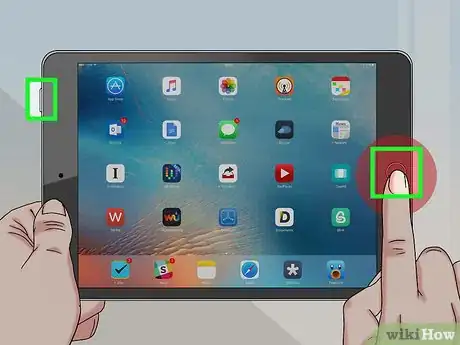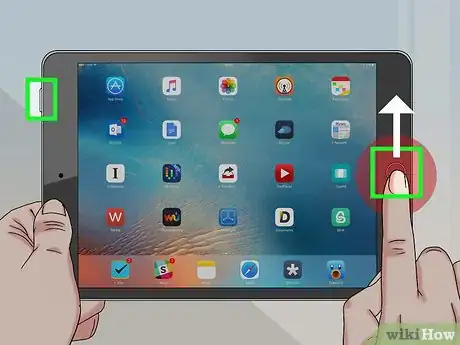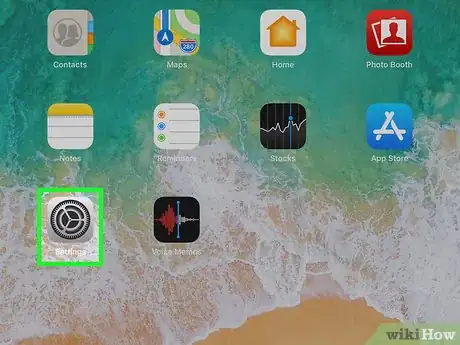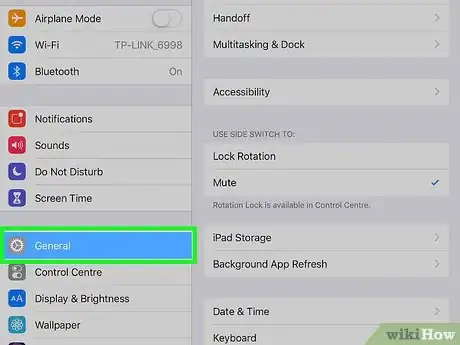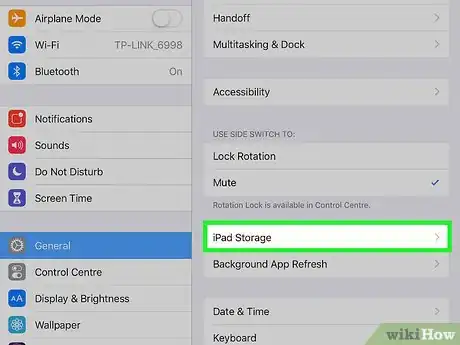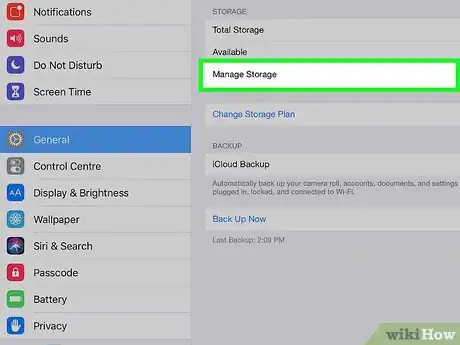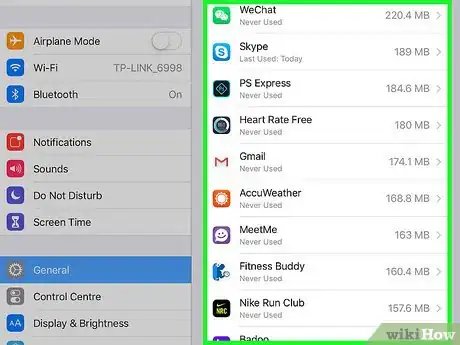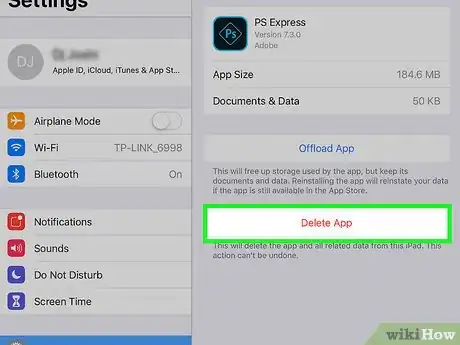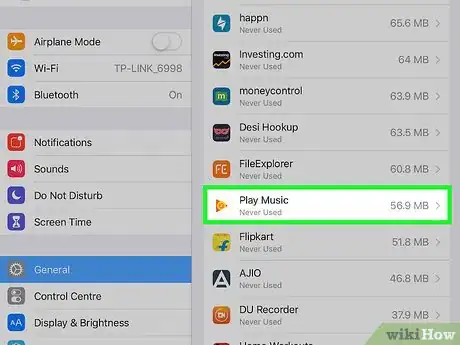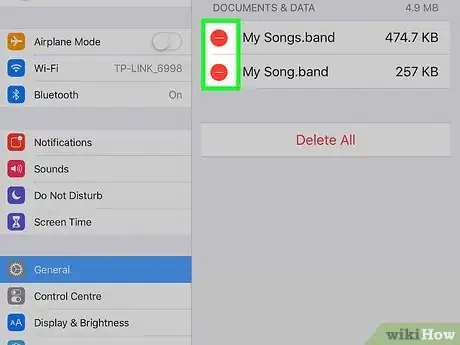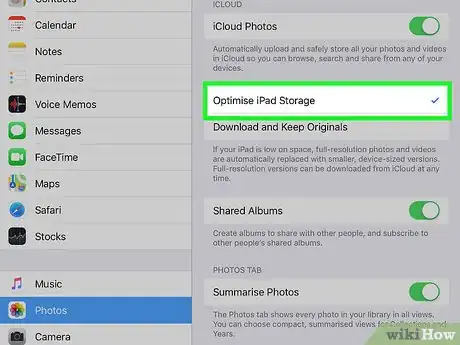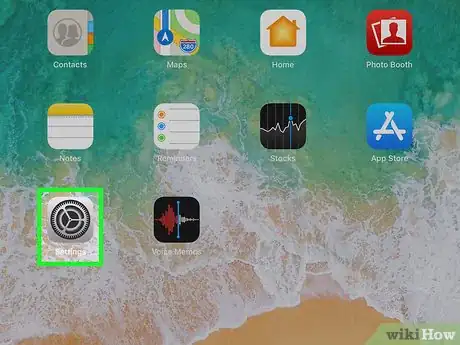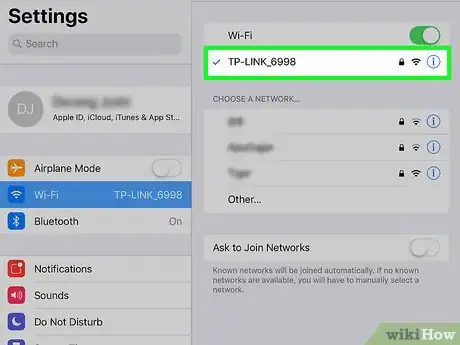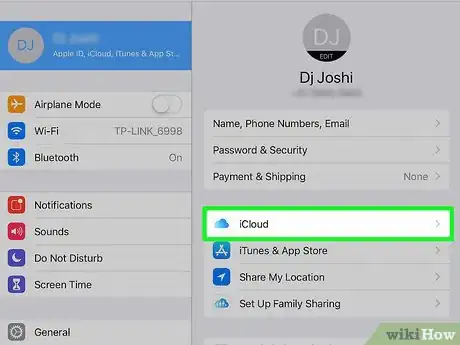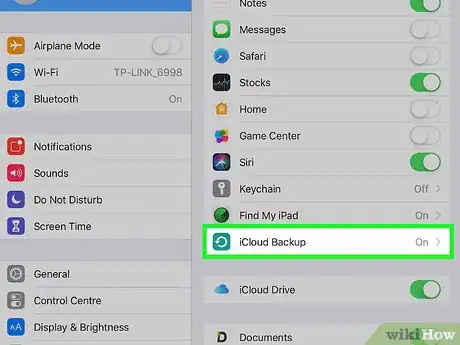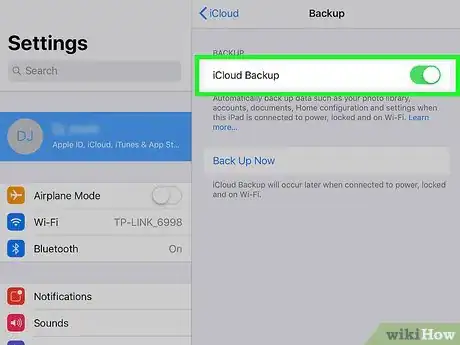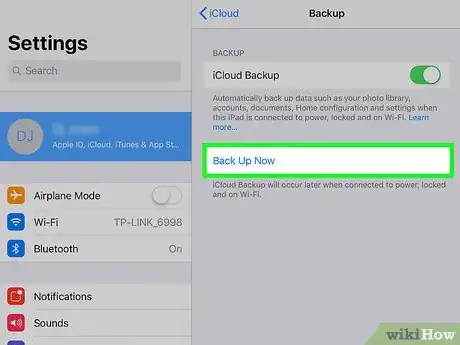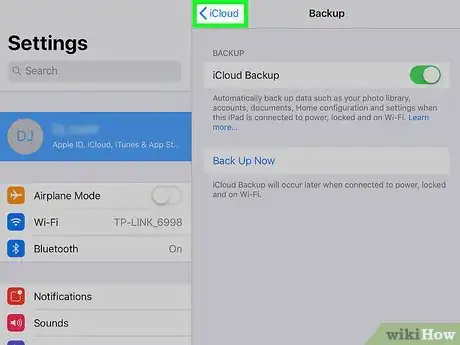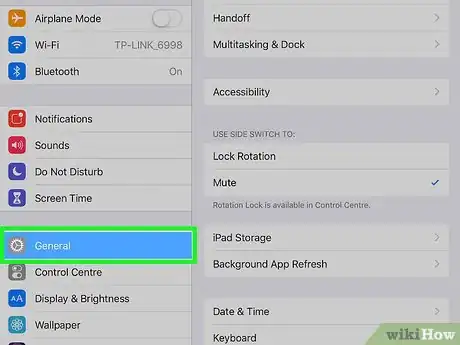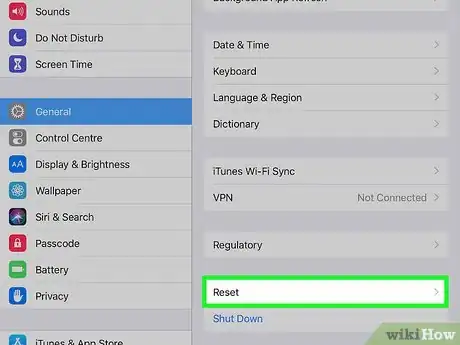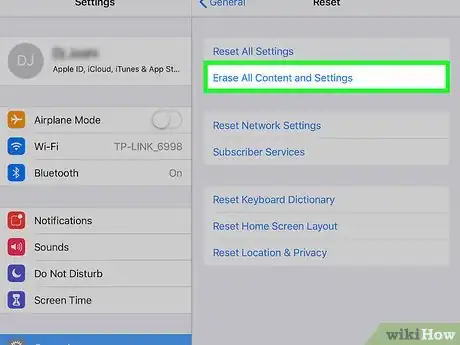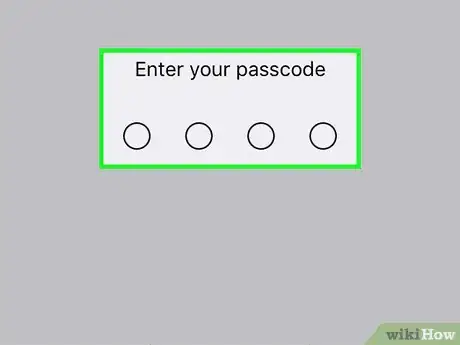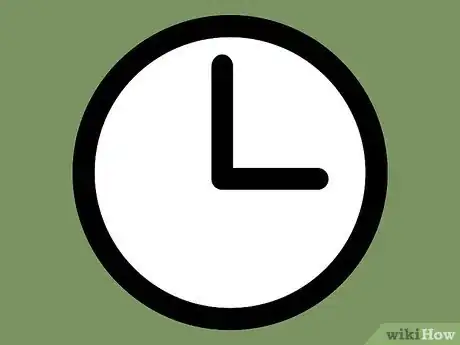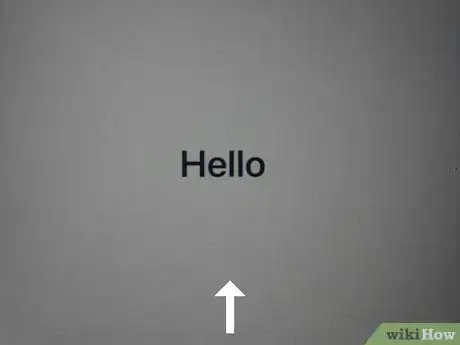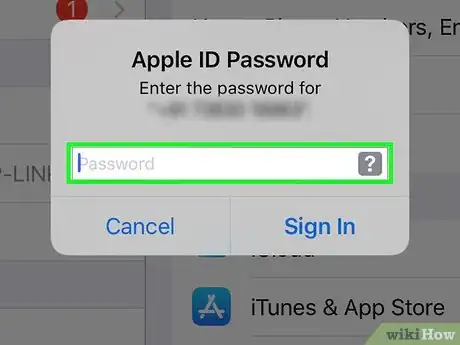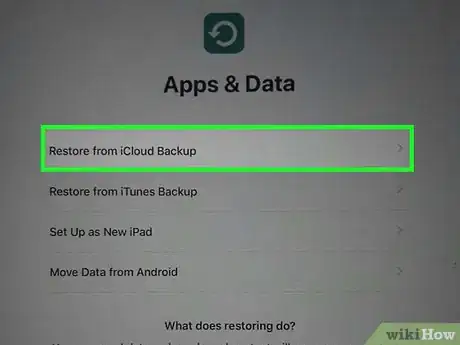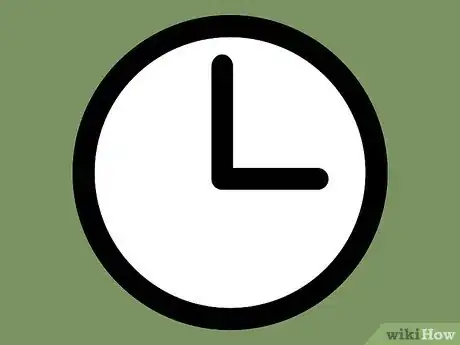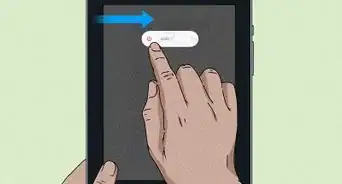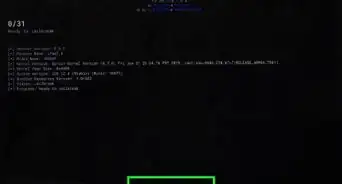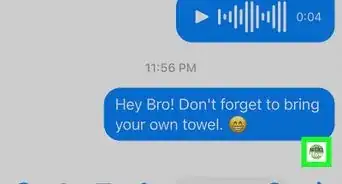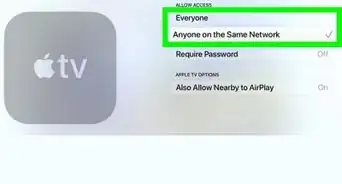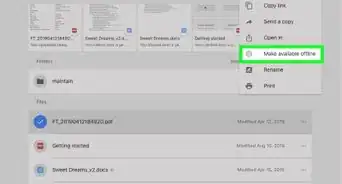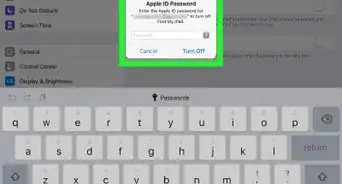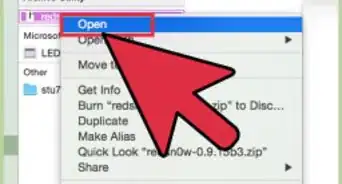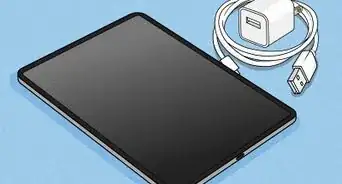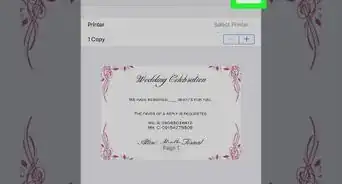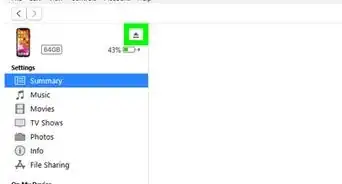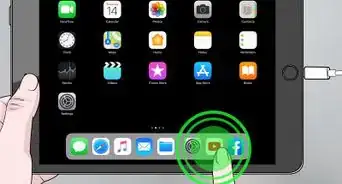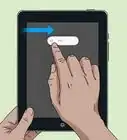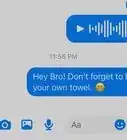This article was co-authored by wikiHow Staff. Our trained team of editors and researchers validate articles for accuracy and comprehensiveness. wikiHow's Content Management Team carefully monitors the work from our editorial staff to ensure that each article is backed by trusted research and meets our high quality standards.
The wikiHow Tech Team also followed the article's instructions and verified that they work.
This article has been viewed 91,144 times.
Learn more...
Forcing your iPad to restart when it is frozen or sluggish can usually fix the issues you're having. If you are crashing often, you may be able to prevent them by freeing up some space on your iPad. For serious issues, performing a factory reset is usually the best option.
Steps
Restarting
-
1Press and hold the Sleep/Wake and Home buttons. The Sleep/Wake button can be found on the top-right side of the iPad. The Home button is the large button in the bottom-center.
-
2Hold both buttons after the screen turns off. The screen will turn off after a few moments. Continue holding the buttons.Advertisement
-
3Release the buttons when the Apple logo appears. Your iPad will begin booting up. This boot-up process may take a minute or two.[1]
Preventing Crashes
-
1Tap the Settings app. This may be in a folder labeled "Utilities."
-
2Tap "General."
-
3Tap "Storage & iCloud Usage."
-
4Tap "Manage Storage" in the "Storage" section.
-
5Tap an app high on the list that you don't use. The apps will be sorted by the amount of storage they take up. Deleting apps that you don't use can help free up a lot of space.
-
6Tap "Delete App." Tap "Delete App" again to confirm and delete the app. You can download it again at any time from the App Store.
-
7Repeat to remove any apps you don't use. Removing a lot of apps can give you space back and prevent your iPad from locking up.
-
8Delete music you don't listen to. Music can take up a lot of space on your iPad. remove old tracks to help improve performance:
- Return to the Manage Storage app list in your Settings app.
- Tap the "Music" option in the app list.
- Tap "Edit" in the upper-right corner.
- Tap the "-" and then "Delete" next to any music you want to remove.
-
9Use the iCloud Photo Library to free up space. The iCloud Photo Library will store your originals on your iCloud account, while keeping a low-quality copy on your iPad. This will free up a lot of space if you have tons of pictures. Be aware that this will count against your iCloud storage limit:
- Tap the Settings app.
- Tap "Photos & Camera."
- Toggle "iCloud Photo Library" on.
- Tap "Optimize Phone Storage."
Resetting to Defaults
-
1Tap the Settings app. If your iPad is crashing often, performing a factory reset may be the best way to get it working again. You won't lose anything if you back up to iCloud first, but you will have to resync any iTunes content from your computer.
-
2Connect to a wireless network. You'll need to be connected to the internet to perform an iCloud backup. A wireless connection is recommended so that you don't use your data plan.
-
3Tap "iCloud."
-
4Tap "Backup."
-
5Toggle "iCloud Backup" on if it isn't.
-
6Tap "Back Up Now." The back up process may take a while to complete. You'll see the date change to today's date underneath when it is complete.
-
7Tap the Back button to return to the Settings app. Tap the "<" button in the upper-left corner twice to return to the list of settings.
-
8Tap "General."
-
9Tap "Reset." You'll find this at the bottom of the list.
-
10Tap "Erase All Content and Settings."
-
11Enter your passcodes. You'll need to enter your screen unlock passcode, as well as your Restrictions code if you have one.
-
12Wait while your iPad resets. This can take 20 minutes or so. You'll see a progress bar underneath the Apple logo.
-
13Start the setup process. Once the iPad is finished resetting, the new device setup process will start.
-
14Log in with your Apple ID. During the setup, log in with your Apple ID when prompted. This will allow you to restore your iCloud backup.
-
15Select your iCloud backup to restore your iPad. When prompted to restore or set up as new, select "Restore from iCloud." The iPad will download the backup and restore your settings.
-
16Wait while your apps download. The apps that you had installed previously will begin downloading to your iPad again. This can take a while if you had a lot of apps, but you can use your iPad while they install in the background.[2]
Community Q&A
-
QuestionWhy is my iPad not playing any videos?
 Community AnswerThis can happen for a few reasons. If your software is out of date, you may need to update it to be able to watch videos. If that still doesn't work, then you may need to take your iPad to a repair store as there may be an internal problem.
Community AnswerThis can happen for a few reasons. If your software is out of date, you may need to update it to be able to watch videos. If that still doesn't work, then you may need to take your iPad to a repair store as there may be an internal problem. -
QuestionHow do I delete applications on an iPad?
 Community AnswerPress and hold on one of your application icons. After a few seconds, the icons will start to shake and an "X" will appear in the upper right corner of each icon. You can now rearrange the icons or touch the X to delete the app.
Community AnswerPress and hold on one of your application icons. After a few seconds, the icons will start to shake and an "X" will appear in the upper right corner of each icon. You can now rearrange the icons or touch the X to delete the app. -
QuestionHow do I refresh the contents in a game on my iPad?
 Community AnswerIn the settings of the game, there might be a reset button. If not, you can delete the game and re-download it.
Community AnswerIn the settings of the game, there might be a reset button. If not, you can delete the game and re-download it.
